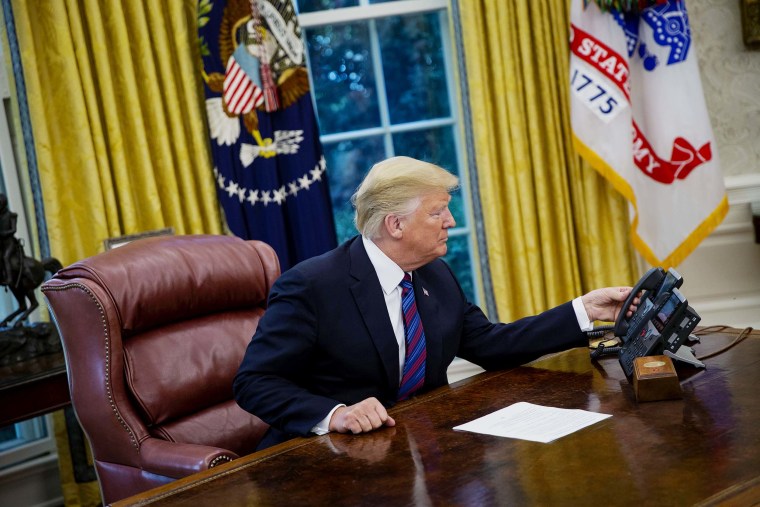Under normal circumstances, Rose Mary Woods never would’ve become a well-known national figure. But as regular readers may recall, the woman who served as Richard Nixon’s secretary for many years became famous anyway for an unfortunate reason.
It was Woods who claimed to have erased 18.5 minutes from one of the Watergate tapes, though she insisted it was an accident. She even demonstrated for cameras how the mistaken recording gap happened, creating images that become known at the time as the “Rose Mary Stretch.”
It was hard not to think of Woods this morning as this Washington Post report jolted much of the political world.
Internal White House records from the day of the attack on the U.S. Capitol that were turned over to the House select committee show a gap in President Donald Trump’s phone logs of seven hours and 37 minutes, including the period when the building was being violently assaulted, according to documents obtained by The Washington Post and CBS News.
The article added that according to the materials obtained by the Jan. 6 committee, official White House call logs don’t reflect any Trump calls — to or from the then-president — from 11:17 a.m. to 6:54 p.m. on Jan. 6, 2021.
That’s 457 minutes — or more than two dozen Rose Mary Woodses.
If this seems at all familiar, it’s because there’s already been some reporting along these lines. The New York Times reported seven weeks ago, for example, that congressional investigators had “discovered gaps in official White House telephone logs from the day of the riot.”

As we discussed soon after, jokes about Watergate aside, the most straightforward explanation for the incomplete logs is simple: Trump might’ve circumvented the official White House switchboard and relied on alternatives. (The Republican said in 2018 he found it “too inconvenient“ to maintain proper presidential telephone protocols.)
But the Post’s reporting nevertheless advances the story with new details, noting, among other things, how investigators are proceeding:
The House panel is now investigating whether Trump communicated that day through backchannels, phones of aides or personal disposable phones, known as “burner phones,” according to two people with knowledge of the probe, who, like others interviewed for this report, spoke on the condition of anonymity to discuss sensitive information. The committee is also scrutinizing whether it received the full logs from that day.
One lawmaker on the panel added that the committee is investigating a “possible cover-up” of the official White House record from Jan. 6.
For his part, Trump told the newspaper he has “no idea what a burner phone is,” adding that he’s unfamiliar with the term.
The significance of the details remains the same: For the bipartisan House select committee, trying to piece together a timeline of what happened before, during, and after the insurrectionist violence, it’s important to know whom the then-president spoke to, when, and for how long.
And the “gaps” in the logs help obscure the facts. Indeed, there are conversations that everyone knows occurred on Jan. 6, including a heated call Trump had with House Minority Leader Kevin McCarthy during the riot, that are not reflected in the logs investigators received from the National Archives.
All of this, of course, also increases the importance of the committee’s subpoenas to telecommunications companies — whom McCarthy threatened last summer, demanding that they not cooperate with congressional investigators.
“If these companies comply with the Democrat [sic] order to turn over private information, they are in violation of federal law and subject to losing their ability to operate in the United States,” the House minority leader said in a statement. “If companies still choose to violate federal law, a Republican majority will not forget and will stand with Americans to hold them fully accountable under the law.”
McCarthy didn’t specify which “law” he believes telecommunication companies would be violating if they cooperated with the investigation, suggesting his intimidation tactics were rooted in hollow posturing.
Seven months later, his efforts are relevant anew. Watch this space.
